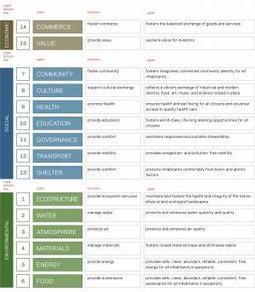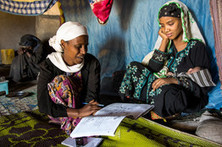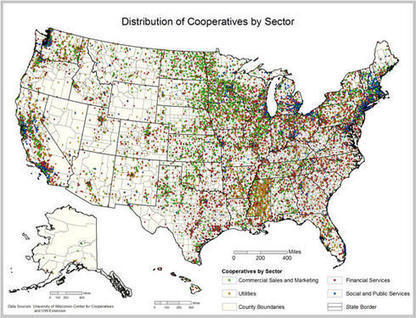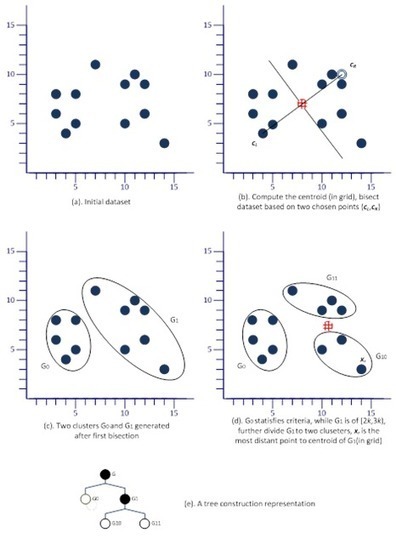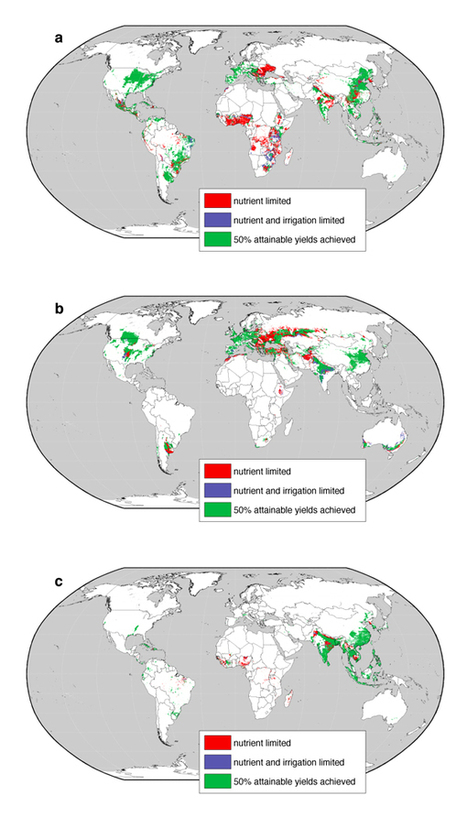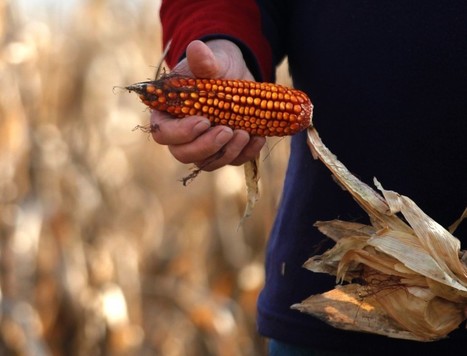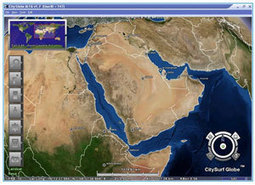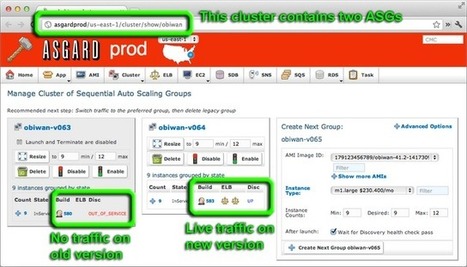 Your new post is loading...
 Your new post is loading...
Poor economies not only produce less; they typically produce things that involve fewer inputs and fewer intermediate steps. Yet the supply chains of poor countries face more frequent disruptions---delivery failures, faulty parts, delays, power outages, theft, government failures---that systematically thwart the production process. To understand how these disruptions affect economic development, we model an evolving input--output network in which disruptions spread contagiously among optimizing agents. The key finding is that a poverty trap can emerge: agents adapt to frequent disruptions by producing simpler, less valuable goods, yet disruptions persist. Growing out of poverty requires that agents invest in buffers to disruptions. These buffers rise and then fall as the economy produces more complex goods, a prediction consistent with global patterns of input inventories. Large jumps in economic complexity can backfire. This result suggests why "big push" policies can fail, and it underscores the importance of reliability and of gradual increases in technological complexity. Contagious disruptions and complexity traps in economic development
Charles D. Brummitt, Kenan Huremovic, Paolo Pin, Matthew H. Bonds, Fernando Vega-Redondo
Via Complexity Digest
Bill Gates on how innovation is the key to a brighter future, and how we're only just getting started.
FIT is a design process incorporating multiple stakeholder viewpoints andhelps integrate sustainability principles into the full range of the design cycle. T he FIT process helps designers to understand the ‘genius of place’ and better leverage existing resources by linking place, challenges and outcomes. It helps break down barriers between municipal and jurisdictional borders and facilitates communication across disciplines by focusing on commonly understand functions. These factors can help reveal symbiotic relationships and solutions that address multiple problems. The FIT process is scalable and generalizable across a wide range of situations.
I had the great pleasure of co-authoring the International Peace Institute's (IPI) unique report on "Big Data for Conflict Prevention" (PDF) with my two colleagues Emmanuel Letouzé and Patrick Vinc...
From the fight against polio to fixing education, what's missing is often good measurement and a commitment to follow the data. We can do better, writes Bill Gates.
Rural Coops started out as necessities for powering rural communities. Can they show a way forward for urban economies? "Rural electricity and telephone coops are one of the great sharing success stories in American history - largely due to coordination by the federal government. In 1934, only 11% of farmers had electricity compared to 90% in Europe. Private electric companies refused to serve many rural customers or price gouged them when they did. The Rural Electrification Administration (REA) was formed in 1935 to fix the problem by providing technical assistance and loans to electric cooperatives. Less than 20 years later, practically all farms had power due largely to electric coops."...
Vincent Huang has a great set of posts at Ericsson labs on preserving privacy in big data analytics. Over the last few years there has been a growing trend in the international development world to highlight the use of big data for development. Using mobile telephony call records, twitter postings etc as raw data sets that can be mined for indicators of social circumstances and systemic change. A key first step in this process is anonymizing the data so individuals cannot be easily identified from distilled results. Vincent's work discusses the requirements and algorithms used and is both a fascinating and essential read for anyone working in this area. Must read posts if you are involved in big data for development or working with private individual identifiable data sets. Click on the image or title to learn more.
Farmers in the U.S.and China should use less fertilizer, freeing it up for application where such nutrients can do the most good...
The Next-Generation of Geospatial Technology and the World Bank’s Role in Using Geographic Information Systems (GIS) to enhance Development Outcomes. Many work programs within the World Bank are now embracing the use of ICT tools for engaging citizens, gathering data, disseminating information, improving transparency and accountability, and ensuring better communication and collaboration. These tools have been employed both in country-level work as well as through efforts to open up the World Bank’s processes. Esri president Jack Dangermond and World Bank staff discuss future possibilities of geospatial technology and how they can use those technologies to meet various development goals. Click on headline to see video of event.
Policy makers the world over are drawing increasingly on complexity science to help them make sense of a whole range of economic, social, political and security issues. However, complexity science has far-reaching implications for how policy makers understand the world. IN a good article by Adrian W. J. Kuah on Eurasia review -- Kuah explores the dichotomy and its implications. Worth reading. Click on the title to learn more...
Biodiversity informatics is about how to develop, integrate and use information about life on Earth,” said Town Peterson, University Distinguished Professor of Ecology and Evolutionary Biology and curator in the Biodiversity Institute. “We have a lot of raw data about biodiversity, which is to say we know places where particular species have been seen. But turning those raw data into usable information is a much bigger challenge.” In Africa, as in much of the world, there is scant availability of training in this important discipline. This is about to change. With funding from the JRS Biodiversity Foundation, Peterson will lead multiple training sessions in four African nations: Ghana, South Africa, Kenya and Egypt. CLick on image or title to learn more.
Interesting article on social-ethographic research and social cognition. Key quote "it is important to pay attention to what people articulate as their own understanding of how social processes work and how they as individuals might negotiate the complex social terrain, rather than simply looking at their actions…." Worth a read
The Open Data for Development Camp is part of The Kenya Open Data Pre-Incubator Program. This is a six-month experiment to help accelerate the ability for the public to make sense of data and to galvanize engagement around critical public issues. This event will take place from Wednesday, June 27, 2012 at 10:00 AM - Thursday, June 28, 2012 at 6:00 PM at Strathmore University. It promises a combination of Keynote Speakers, Workshops, Best Practices, Speed Geeking, Hack Space, Networking, Exchange of knowledge and needs, Sharing Data Sets, Co-Creation, Open Data Visualizations, and Inspiration.
|
The dynamics of economies and infectious disease are inexorably linked: economic well-being influences health (sanitation, nutrition, treatment capacity, etc.) and health influences economic well-being (labor productivity lost to sickness and disease). Often societies are locked into ``poverty traps'' of poor health and poor economy. Here, using a simplified coupled disease-economic model with endogenous capital growth we demonstrate the formation of poverty traps, as well as ways to escape them. We suggest two possible mechanisms of escape both motivated by empirical data: one, through an influx of capital (development aid), and another through changing the percentage of GDP spent on healthcare. We find that a large influx of capital is successful in escaping the poverty trap, but increasing health spending alone is not. Our results demonstrate that escape from a poverty trap may be possible, and carry important policy implications in the world-wide distribution of aid and within-country healthcare spending. Escaping the poverty trap: modeling the interplay between economic growth and the ecology of infectious disease
Georg M. Goerg, Oscar Patterson-Lomba, Laurent Hébert-Dufresne, Benjamin M. Althouse http://arxiv.org/abs/1311.4079
Via Complexity Digest, Eugene Ch'ng
Biotech, farmer associations key for climate adaptation - panel Reuters AlertNet (blog) LONDON (Thomson Reuters Foundation) - An increasingly extreme climate is presenting new challenges to farmers across the world, and biotechnology and greater...
WiSee is a novel interaction interface that leverages ongoing wireless transmissions in the environment (e.g., WiFi) to enable whole-home sensing and recognition of human gestures. Since wireless signals do not require line-of-sight and can traverse through walls, WiSee can enable whole-home gesture recognition using few wireless sources (e.g., a Wi-Fi router and a few mobile devices in the living room).
Research based implementation of development programs is mainly assisted with Geographic Information System (GIS) and disseminated through Public Relations (PR).
Via Knapco
TED Talks When most well-intentioned aid workers hear of a problem they think they can fix, they go to work. This, Ernesto Sirolli suggests, is naïve. Worth watching.
Via Arun Shrivastava
As we plan for the future of our planet, it is imperative that we consider the effects of development on both the environment and human populations. A city is only truly sustainable if it uses natural resources efficiently while still fully meeting the needs of its inhabitants and a decent standard of living. Recently, the UN Human Settlements Program (UN-HABITAT) launched its “State of the World’s Cities Report 2012/2013” which addresses the prosperity of cities. According to the report, the first step to achieving prosperity is to define the goal: What does prosperity mean in 2012? This is a difficult question to answer given the vast disparity of living conditions throughout the world. Additionally, it is imperative that the definition of prosperity today consider the needs of future generations. To this end, UN-Habitat developed a “City Prosperity Index,” which translates the five dimensions of prosperity identified by UN-Habitiat—productivity, infrastructure development, quality of life, equity and social inclusion, environmental sustainability—into measurable indicators (see page 15 of the report). This definition of the prosperous city is consistent with the principles of a smart, sustainable and just city... further reading at the article link
Via Lauren Moss
For the past several years Netflix developers have been using self-service tools to build and deploy hundreds of applications and services to the Amazon cloud. One of those tools is Asgard, a web interface for application deployments and cloud management.
Asgard is named for the home of the Norse god of thunder and lightning, because Asgard is where Netflix developers go to control the clouds. I’m happy to announce that Asgard has now been open sourced on github and is available for download and use by anyone. All you’ll need is an Amazon Web Services account. Like other open source Netflix projects, Asgard is released under the Apache License, Version 2.0.Click n the image or the title to learn more.
The UN says that each person needs between 20 and 50 liters of safe freshwater per day for drinking, cooking, and cleaning. Yet more than one in six people worldwide don’t have access to this amount—and some 2.5 billion live without access to even basic sanitation facilities. Combined, these have a shocking impact: Globally, diarrhea is the leading cause of illness and death. But the failure of international intervention has left the door open for grassroots solutions: In both Indonesia and the Philippines, a small entrepreneurial approach to safe water provision has achieved massive scale in an extremely short time span. The “water refill” industry, which utilizes low-cost technology to purify water on site in locally run businesses, has received little attention in the West, but it represents possibly the most effective means for water delivery in the developing world.Molecular biologist Ranjiv Khush and hydrologist Jeff Albert are now hoping to replicate the Asian model in other parts of the world, beginning in East Africa. Click on the image or title to learn more.
Despite the new agey title - interesting article at the design observer on mapping development timescales to those of the underpinning ecological systems that are required to support it, using balinese rice production as an example. Worth a read. Click on image or title to learn more.
A new assessment of Madagascar's lemurs shows they are far more threatened than previously thought. A group of specialists is in Madagascar - the only place where lemurs are found in the wild - to systematically assess the animals and decide where they sit on the Red List of Threatened Species. More than 90% of the 103 species should be on the Red List, they say. Since a coup in 2009, conservation groups have repeatedly found evidence of illegal logging, and hunting of lemurs has emerged as a new threat. Click on image or title to learn more...
This European Public Sector Information Platform topic report focuses on the question of how improved access to and analysis of data can help increase transparency, accountability and effectiveness to improve our understanding of how aid can be made more effective. Link to PDF file on web page. Click the headline to learn more...
A good review of Open House: Smarter cities, smarter thinking meeting on the 28 June, 2012 . This year’s conference centred on the cohesive development of our cities. Delegates from BDP, Hawkins Brown, Nicholas Hare Architects, Pick Everard and Foster + Partners were among those present at the second day of the Open House Worldwide Conference 2012 hosted by CBRE in London. Worth reading. Click on image or headline to learn more.
|



 Your new post is loading...
Your new post is loading...


